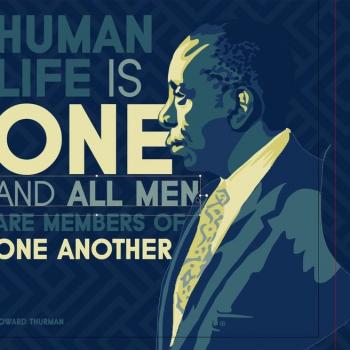The Adventurous Lectionary – July 30, 2023 – Ninth Sunday after Pentecost
Genesis 29:15-28
Psalm 105:1-11
I Kings 3:5-12
Romans 8:26-39
Matthew 13:31-33, 44-52
Pentecost is the season of divine revelation and profound giftedness. Spirit moves in all things, awakening us to a democracy of inspiration, whose inspiration includes us. God’s abundance is strewn everywhere, for all to experience, in every time and place and those who are attentive to it will experience wisdom and the ability to discern their vocation in life. They will discover gifts aplenty to serve the world and its Creator. Focused on God, they will find, as Solomon did, personal fulfillment and from that they will bring justice and abundance to the world. Politicians and citizens alike are challenged to pay heed: your gifts are not your own, nor are they for a select few – the wealthy and wise – to enjoy. Your gifts and power are for the common good. Political leaders are challenged to put communal and global wellbeing above their own political interest. Even among political leaders, our gifts are for the world. Our fulfillment is found in going beyond self-interest to world loyalty and to bring beauty to the world and, accordingly, to God’s life. We can as individuals and citizens, laypersons and leaders, do something beautiful for God.
The Psalmist invites us to theological mindfulness and explores the many dimensions of seeking God’s guidance. Opening to divine wisdom begins with gratitude for God’s presence in the world and our lives, for the gifts we have received and God’s care for our nation and the world. From gratitude comes praise and delight at the wonder of God’s world – the heavens above and the moral law within, as Immanuel Kant notes. Seek and remember. Seek God’s presence, awaken to his movements in our lives and the world, listen for God’s guidance. Remember God’s faithfulness as the source of confidence in future blessings.
Pondering the passage from I Kings: Does God give us what we want? Does God speak personally to us, inviting us to share our deepest desires and then receive our heart’s desires? Does God truly reach out intimately to us, inviting us to deeper levels of faith? In the asking and in conversation with God, we may discover what we truly want, beyond the superficial offerings of prestige, power, and wealth.
Awed by the task ahead of him as king, Solomon dreams of a divine visitation in which God asks the new sovereign to share his deepest desire. Solomon’s response is to ask God to give him an understanding and discerning heart. Rather than power or wealth, Solomon asks for wisdom, for the ability to experience God’s guidance in his leadership. Apart from divine guidance, his reign will be a failure. With divine guidance, he can go beyond his own self-interest to discern and seek the needs of the nation.
Solomon’s dream models our own spiritual adventures. As we look at the world, even though most of us are not, like Solomon, power brokers, we often feel over our heads and wonder what we can do in response to the crises of our time: anti-democracy in our land, the rise in racism, climate change, incivility, and economic injustice. We are “guilty bystanders,” to quote Thomas Merton, but we cannot remain so. We must claim our responsibility as change agents, even if our power seems limited. We must pray for wisdom in bringing wholeness to the world we shape by our relationships and citizenship. Intentionality is central to spiritual maturity and social responsibility. Just as Charles Sheldon once asked, “What would Jesus do?” (from “In His Steps”), we would do well to live in constant awareness of God’s wisdom in our lives. Divine wisdom is both long haul and moment by moment in nature. Congregants might be challenged to constantly ask for divine wisdom and understanding. Certainly, this might deliver us from the temptation to focus solely on our well-being rather than the well-being of the whole.
Wisdom focuses on both details and the big picture, and these days we need to be delivered from thinking small and living small in terms of our communal responsibilities. We need to join individual growth with world loyalty. (For more on the ecology of healing, embracing individual and planet, see Bruce Epperly, “Process Theology: Embracing Adventure with God,” “Process Spirituality: Practicing Holy Adventure,” “Praying with Process Theology: Spiritual Practices for Personal and Planetary Healing,” and “Process Theology and the Revival We Need.”)
Solomon’s dream invites congregants also to consider whether or not they can receive nocturnal messages from God, welling up from the unconscious. An ever-present God surely communicates through every aspect of our being. Can we ask for divine guidance through dreams and visions?
Solomon’s dream also challenges us to seek wisdom and self-transcendence in our citizenship. Clearing the swamp is not enough if what takes its place is greed, environmental degradation, a preferential option for the wealthy, and dishonesty and egocentrism at the highest levels of government. Citizens need to pray for their leaders, but also call them to account: are you putting ideology ahead of human and non-human well-being? Is greed and consumption or winning the next election your primary value or liberty and justice for all? Is winning at any cost more important than care for the least of these? Our politicians need to be convicted – and to repent – of their turning from justice, substituting tweets for transformation and loyalty for compassion and justice. This is especially crucial when politicians deny science and statistics to promote their election chances. We need to replace the love of power with the power of love.
I must admit that today’s passage from Romans 8:26-39 is one of my favorites in scripture. Today’s reading from Romans has at least three sermons embedded in it. First, Paul describes the inner wisdom of God’s Spirit. We don’t always know what’s best, but the Spirit intercedes for us in sighs too deep for words, guiding and enlightening us. The Spirit is the inner voice of God, but it is not private. God’s Spirit, as last week’s passage from Romans asserts, joins the human and non-human. Our deepest prayers have global as well as personal implications.
According to Romans 8, God communicates beneath consciousness in preverbal ways – intuitions, dreams, and inclinations, the sighs too deep for words – as well as consciously through scripture and insight. This Spirit-centered passage reminds us that God’s wisdom trumps our own. We often don’t know what’s best and need to open through prayer and meditation to a greater wisdom and a higher power.
Second, and I prefer this translation, “in all things God works for good” to “all things work together for God.” This translation suggests a wide-open universe, characterized by a divine-human melody of call and response. Though divine wisdom precedes our response, God does not determine all things, and yet is present in all things as the force of healing and fulfillment. There is a hint of predestination in the passage, and if we interpret this in a strong sense of predestination most of humanity is excluded, contrary to the spirit of the first half of Romans and its implicit universalism. In contrast, I believe that the divine decision includes all creation and when we turn toward God, the goodness of life bursts forth in our lives. Predestination – and a better word is gentle, open-ended and non-controlling providence – must be global to be congruent with God’s love. Predestination is not ultimately about power or exclusion – and focus on power necessarily excludes those we deem as “others” – but providential care, mated with respect for creaturely agency, that all be saved and healed.
Finally, Paul proclaims that we are more than conquers and that nothing can separate us from the love of God. Our relationship with God includes all of life’s “unfixables” (Alan Jones) and “necessary losses” (Judith Viorst). People we love die of cancer, parents and spouses grieve the loss of loved ones, and we face our own mortality. These are all part of God’s world and inevitable. Still, we can experience God’s presence and peace in the midst of all the threats of life. The peace that passes all understanding is born of a heart of wisdom that experiences God’s own wisdom embracing all of our beginnings and endings. Nothing in creation can separate us from the love of God.
The gospel reading also speaks of the inner energy of God that enables seeds to grow to become great spiritual and ethical plants and guides us toward surprising moments of grace. Grace gives life and nurtures. The only appropriate responses are joy, gratitude, and service.
The final section of today’s gospel lesson, however, is a spiritual buzzkill (Matthew 13:49-50) – there is a sense of total destruction and abandonment for those who fall away. Some will be irreparably lost. If you choose to read this, and I am tempted to omit these passages, you must preach about it. Is this destruction final or is it a pruning or refining enabling us to grow spiritually? Does God turn God’s back on wayward humanity, condemning backsliders to eternal damnation for finite sinfulness? Or, is the fiery furnace a purifying crucible that peels that which stands in the way of our relationship with God, so that we and the whole earth may experience divine blessing? Is this passage about final judgment or the reality that values and actions have consequences and that we want to be on the side of the mustard seed and with those who put God first, willing to sell everything, for God’s realm?
Today’s passages invite pastor and congregants alike to bathe themselves in God’s ubiquitous wisdom. If we ask for God’s guidance, help is on the way and wisdom emerges sufficient for today’s challenges. We don’t need to depend on our political leaders for our moral compass; follow God’s vision, we have all the wisdom we need to call them to a higher morality. God speaks to us in scripture, worship, prayer and meditation, dreams, and intuition, and all encounters can become messages of God. It is up to us to listen, follow, and respond in ways that bring wholeness to the world. It may mean prayer and protest, and confrontation with injustice in quest for God’s realm. We can lean toward God’s wisdom, even if it is costly in the world’s eyes, because nothing can separate us from the love of God.
+++
Bruce Epperly is a pastor, professor, spiritual guide, and author of over seventy books, including THE ELEPHANT IS RUNNING: PROCESS AND OPEN AND RELATIONAL THEOLOGY AND RELIGIOUS PLURALISM; PROPHETIC HEALING: HOWARD THURMAN’S VISION OF CONTEMPLATIVE ACTIVISM; MYSTIC’S IN ACTION: TWELVE SAINTS FOR TODAY; WALKING WITH SAINT FRANCIS: FROM PRIVILEGE TO ACTIVISM; MESSY INCARNATION: MEDITATIONS ON PROCESS CHRISTOLOGY, FROM COSMOS TO CRADLE: MEDITATIONS ON THE INCARNATION, and THE PROPHET AMOS SPEAKS TO AMERICA. His most recent books are JESUS: MYSTIC, HEALER, AND PROPHET, PROCESS THEOLOGY AND THE REVIVAL WE NEED and TAKING A WALK WITH WHITEHEAD: MEDITATIONS WITH PROCESS-RELATIONAL THEOLOGY. He can be reached at [email protected]













